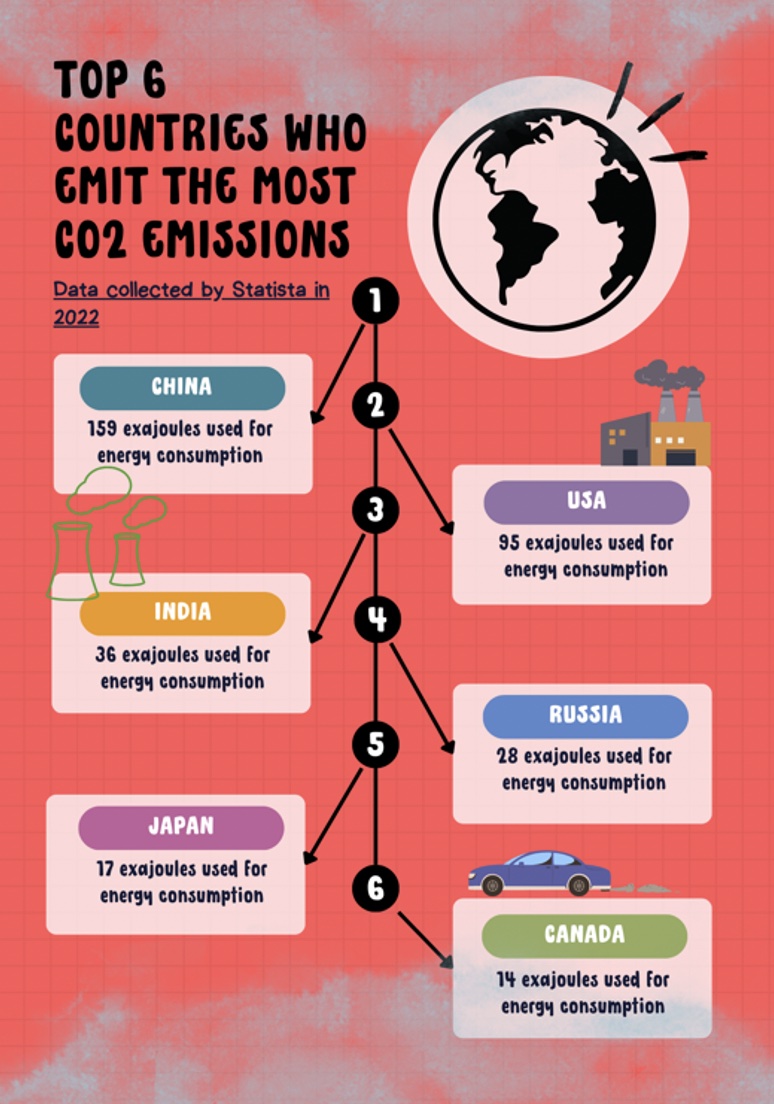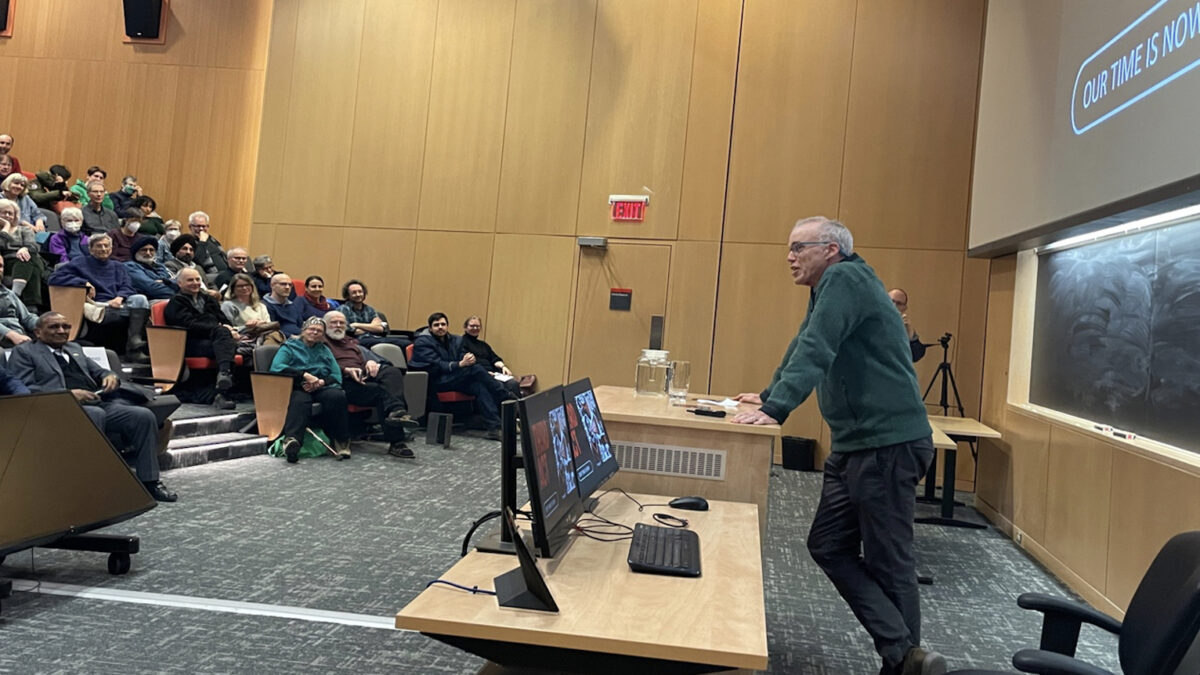In a recent lecture at Carleton University, renowned American environmentalist Bill McKibben called upon older members of society to intensify their efforts to fight climate change rather than letting young people lead the charge alone.
The 63-year-old, California-born McKibben, a high-profile author, eco-activist and public speaker, founded the advocacy group 350.org in 2007 to press the world to end its reliance on fossil fuels and push to reach what scientists consider a stable atmospheric carbon dioxide concentration of 350 parts per million.
That concentration was already at 338 ppm in 2007 and had reached 421 ppm by 2022.
McKibben encouraged older members of the Carleton crowd — who made up a significant proportion of the audience — to use their experience as protesters, along with his own activism, as an inspiration to press for stronger climate action alongside young people.
I hear a few too many people my age say, ‘Oh, it’s up to the next generation to deal with these problems.’ We do not have the time for (young) people to grow up and become CEOs, … We have to make this change now, so they need our backing.
Bill McKibben, author, environmentalist and founder of 350.org, at Carleton lecture
This was a nod to his Third Act, a climate action group for seniors who wish to be involved in urgent environmental activism.
“I hear a few too many people my age say, ‘Oh, it’s up to the next generation to deal with these problems.’ We do not have the time for (young) people to grow up and become CEOs,” said McKibben. “We have to make this change now, so they need our backing.”
McKibben spent most of his lecture discussing how peaceful protests against global warming can and have created change. He reflected on his own career as an organizer of many peaceful protests around the world, a presentation that had the rapt attention of a capacity crowd in the main auditorium at Carleton’s Richcraft Hall.
He made the point that countries around the globe continue to use fossil fuels, with Canada being one of the biggest consumers of oil and gas on the planet.

McKibben noted that climate change has already begun initiating severe weather events, often resulting in tragedy, in Canada and other countries in the years since the 2015 Paris Agreement to strengthen carbon emission controls.
He specifically referenced Libya’s catastrophic flooding in September, which left 4,000 people dead.
McKibben reflected on founding 350.org and his fight to help create a world powered by renewable energy. He said his organization alone has reached 181 countries over nearly 20 years.
Gillian Graham, a 24-year-old climate activist with Last Generation Canada, said she admires McKibben’s work in raising awareness for climate change.
“I have a lot of respect for him and his tactics in that way. It’s really difficult to get people on the street to actually care about something,” Graham said. “Bill McKibben has been sounding the alarm for years and years and years.”
William van Geest, program coordinator for Ecology Ottawa, said McKibben’s non-violent protests are reasonable and effective.
“I think the urgency that he suggested is necessary and the methods that he would encourage, match the urgency of the climate crisis. I don’t think he’s under any illusion,” said van Geest.
McKibben’s lecture ended with a standing ovation as audience members of all ages clapped for several minutes before leaving the venue.
Van Geest, who was in the audience, said McKibben’s campaigns are inspiring.
“He’s targeting seniors, folks above 60, and every campaign that he undertakes, he’s recognizing his audience, he’s recognizing the power that they have,” van Geest said. “I think that’s a pretty good model for us to follow.”
He’s targeting seniors, folks above 60, and every campaign that he undertakes, he’s recognizing his audience, he’s recognizing the power that they have. I think that’s a pretty good model for us to follow.
William van Geest, program coordinator, Ecology Ottawa
Graham said that although McKibben’s initiatives are helpful, a single person is not enough to take significant action against climate change.
“I think that Bill McKibben, as one person, can’t necessarily solve the climate crisis.”
Graham said we are not doing nearly enough for the environment and that the media is misguiding the public’s perception on what is actually being accomplished.
“If you don’t do your research, it seems like we’re doing something,” she said. “And the mainstream media is very, very good at playing that narrative.”
She believes the government’s loyalty to industries is the reason we cannot make meaningful, transformative changes to protect the environment.
Said Graham: “Our politicians in … most countries have their hands very, very deep in the oil and fossil fuel industry.”
Van Geest shared that view, saying government institutions are preventing scientists from making an impact.
“Part of me likes to think that if we had enough information, we would act accordingly,” said van Geest. “That’s hard to say that that’s actually true.
“We certainly know enough about climate change to act accordingly,” he continued. “But part of it is systemic. … We have political systems that make it very difficult for us to change.”
However, van Geest said McKibben allows people to understand that they can create change for a positive future, instead of waiting to make it happen.
“He helps people … find ways to pursue those solutions, rather than waiting around, hoping for some brilliant technological discovery.”




